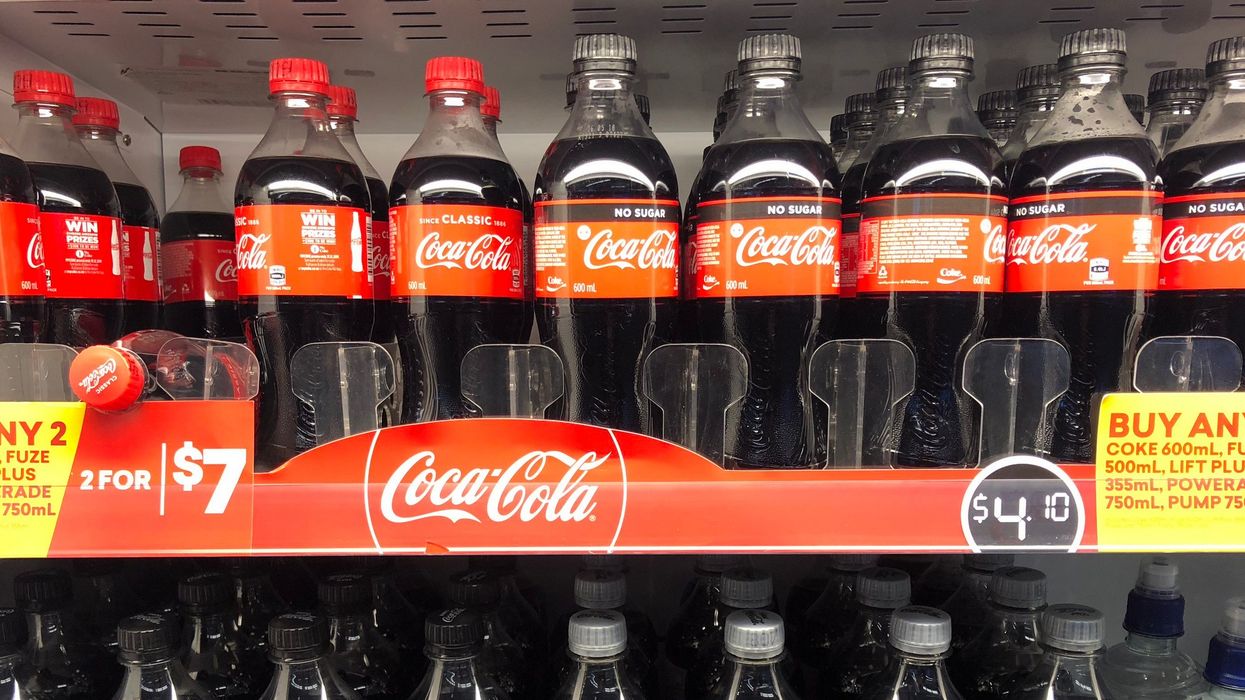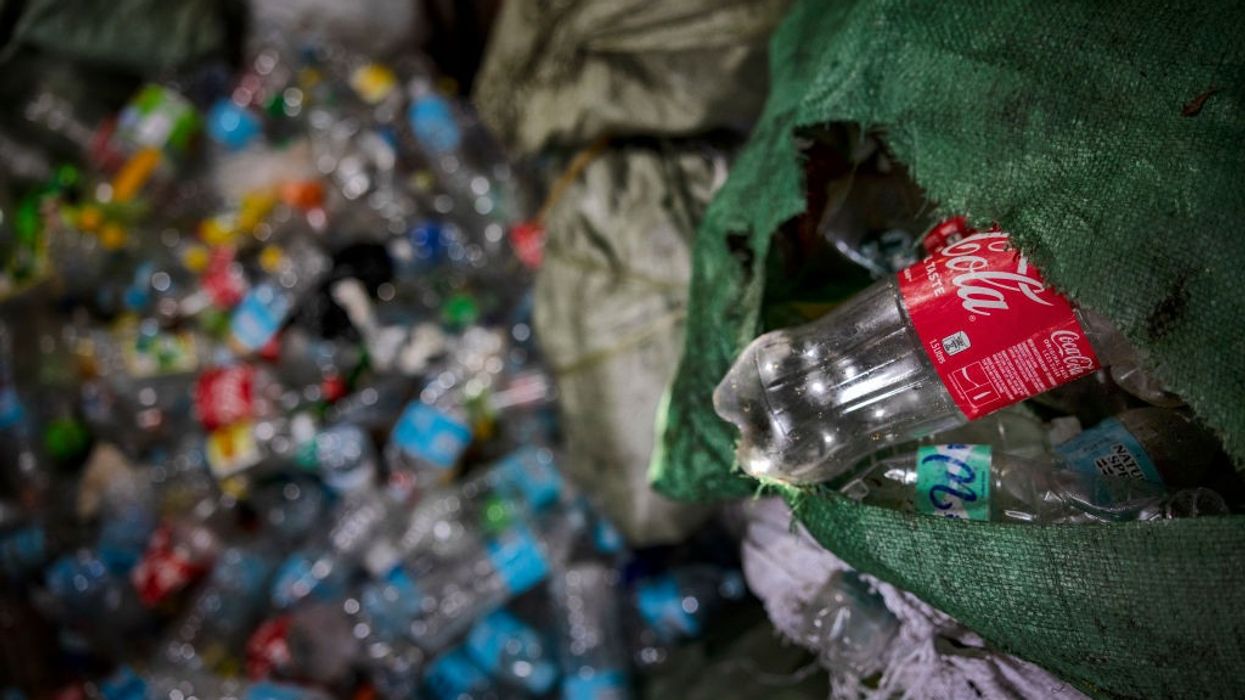In the past decade Coca-Cola has had a history of publicly declaring
targets for reducing its contribution to plastic pollution—from selling its beverages in recyclable packaging, to using more recycled material in its bottles, to using more reusable packaging.
It has had the dubious distinction of being the largest plastic polluter for five years in a row, with its name on more pieces of plastic litter collected around the world than any other company.
But it’s all hot air, or fizzy water, or whatever. Its failure to meet self-imposed, largely
unambitious goals, is well-documented. The company has been criticized for backsliding on its various “sustainable” commitments: to reduce the single-use plastic consumption (it in fact increased its consumption from 125 billion bottles in 2021 to 134 billion in 2022); use more recycled plastic in its bottles (a 1990 pledge to make its bottles from 25% recycled plastic has not been met over 30 years later); and to transition to reusable packaging (a gimmicky, piecemeal rollout in a handful of neighborhoods, with little to no scalable impact yet to be seen). In the meantime, it has had the dubious distinction of being the largest plastic polluter for five years in a row, with its name on more pieces of plastic litter collected around the world than any other company.
But these are actually the least of its failures: Beneath the veneer of public, seemingly good-faith attempts to clean up its operations and help solve the climate and plastic crisis, lurks a deep and systemic commitment to a take-no-prisoners approach to the bottom line. Coca-Cola Capitalism comes first.
Take, for example, a 2020 report on the food industry’s systemic greenwashing tactics that dedicates a full 50 pages to the world’s 10 biggest food and beverage industries’ concerted efforts to
undermine plastic waste reduction policies in 15 countries. Documents from The Coca-Cola Company reveal its true commitments—to “fight back” against package regulations in Europe, to slow down the rollout of deposit return schemes in Europe and Kenya, and to oppose a plan to streamline recycling in the U.S. state of Georgia.
While at least reluctantly acknowledging its role in the plastic pollution problem, the company has done little to address the toxic impacts of its supply chain and product.
This sort of behavior isn’t just limited to the realms of plastic pollution and climate change. The control over national and state policy extends to how the company approaches toxic chemicals in plastics.
While at least reluctantly acknowledging its role in the plastic pollution problem, the company has done little to address the toxic impacts of its supply chain and product.
Our reporting shows that the plastic bottle supply chain is a critical driver of the environmental racism behind whole communities being poisoned by dangerous air and water pollution and treated as sacrifice zones. Meanwhile, Coke’s consumption of PET plastic does not seem to be decreasing.
Perhaps the most problematic of The Coca-Cola Company’s sustainability failures is that as Coke goes, so goes the PET resin and PET bottled beverage industries. We found that Coke alone uses a fifth of all the PET bottles made in the world. And our in-depth reporting and follow-up conversations with beverage companies around the particularly dangerous antimony catalyst used to make the bottles confirm that the same bottlers that supply The Coca-Cola Company, brands like
Amcor and CKS, are often the same bottlers used by other, often smaller brands that must rely on for their products. We held conversations with beverage companies of varying sizes as part of our Detox the Bottle Pledge, and an emerging theme revealed that the majority of PET bottles on the market are the product of a close relationship between the several biggest brands like Coke, big bottle manufacturers like Amcor and CKS, and giant resin producers like IVL and DAK. These relationships foster a shared interest in sustaining the plastics industry, even if it means compromising on consumer safety and ignoring established science on toxic impacts of their current practices. Smaller brands with an interest in selling safer products often have little sway within the industry and face difficulties when pushing for safer, more just packaging under the specter of strong business relationships among industry behemoths.
As long as The Coca-Cola Company maintains an iron grip on the PET bottle industry, makes little to no progress on its own goals, ignores the full impacts of its reliance on plastics on fenceline communities and consumers, and actively undermines legislation to reduce the harmful impacts of plastics, the entire interconnected universe of bottled beverage industry, bottlers, and resin makers will continue to harm people and the planet. If the company wants to be the global citizen it purports to be, it should start by telling its bottle manufacturers to make bottles with a safer alternative catalyst and it should rapidly scale up reuse and refill systems in countries like the U.S. where they’re woefully nonexistent. It’s time for the biggest plastic consuming companies to find safer packaging that doesn’t poison entire communities and their consumers.




